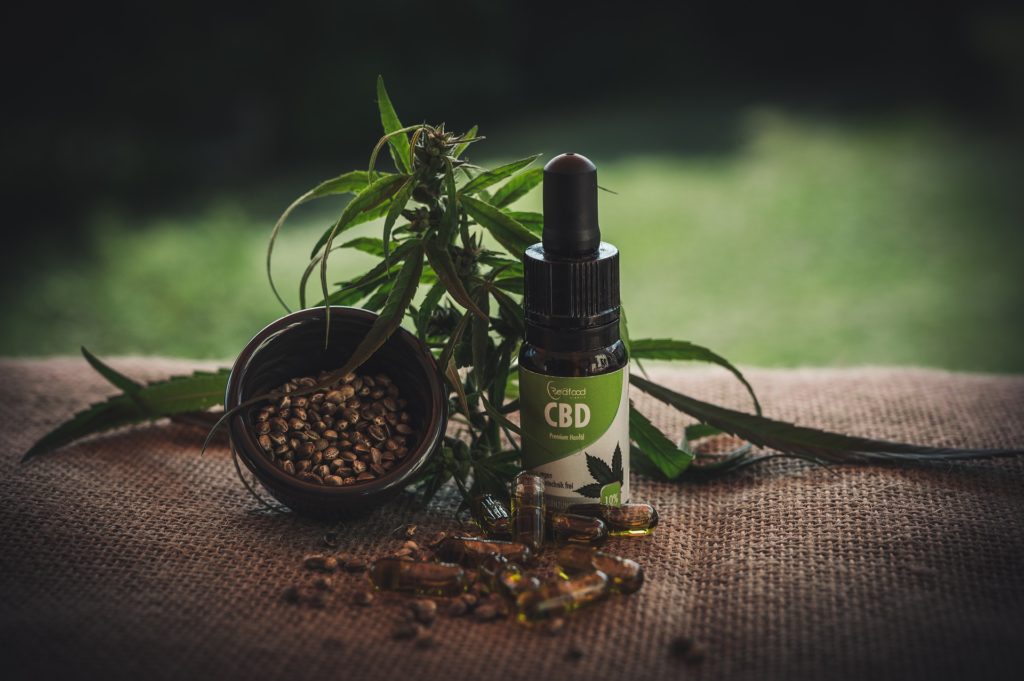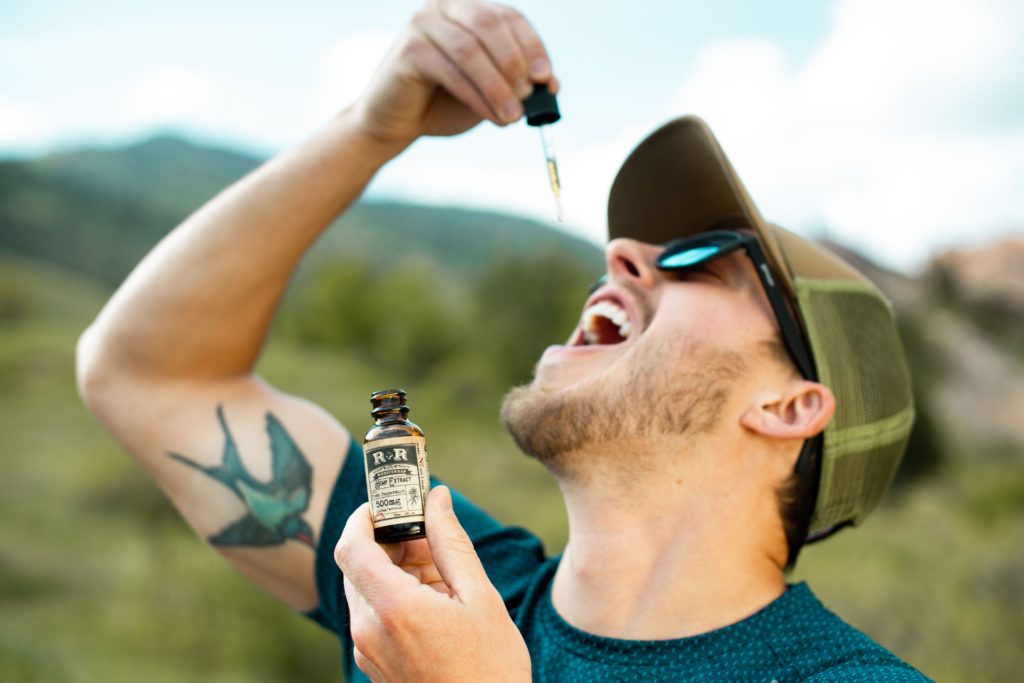The Intricacies of CBD in the Pharmacy
It is likely pharmacists have been getting numerous requests for, and questions about, cannabidiol (CBD) and CBD oil, and pharmacies across the country have considered adding CBD to their OTC product selection, if they haven’t already. A well-stocked section of nonprescription products can be vital for pharmacy profitability, but CBD is not your average OTC product.
How Did We Get Here?
Cannabis sativa is an herbaceous plant with different varieties—hemp and marijuana are two of them. Hemp and marijuana contain chemicals known as cannabinoids, such as CBD and tetrahydrocannabinol, or THC. THC has psychoactive properties—THC is what puts the user in an “altered state.”
Varieties of Cannabis sativa that produce high THC concentrations are what we commonly know as marijuana. On the other hand, hemp is a strain of Cannabis sativa that has lower concentrations of THC and is a cousin of the marijuana plant.
CBD is one of dozens of cannabinoid substances found in Cannabis sativa; but unlike THC, CBD by itself does not cause the “high” associated with marijuana.
The 2014 Farm Bill differentiated industrial hemp from marijuana. The federal government defines hemp as cannabis that contains no more than 0.3% of THC. The Farm Bill also authorized industrial hemp research by institutions of higher education or departments of agriculture in states where hemp cultivation was legal. The 2018 Farm Bill went a step further, by removing hemp from the list of controlled substances, which has since facilitated research on hemp derivatives, like CBD, as well as the legal cultivation, possession, sale, and distribution of hemp.
CBD Is Everywhere
The meteoric popularity of CBD has turned it mainstream, with companies touting it as a cure-all for everything from anxiety to arthritis to insomnia to chronic pain. The New York Times has reported “[S]ome brands have claimed that their CBD is a ‘lifesaver’ and an ‘unbelievable cure.’” In July, the FDA issued a warning letter to Curaleaf Inc., of Massachusetts, “for illegally selling unapproved products containing cannabidiol (CBD) online with unsubstantiated claims that the products treat cancer, Alzheimer’s disease, opioid withdrawal, pain and pet anxiety, among other conditions or diseases.” In fact, in 2019 alone, the FDA has issued warning letters to 22 different CBD companies—something rather unprecedented for a dietary supplement.
While one can assume the FDA is keeping a close eye on CBD, regulators haven’t quite kept up with the widespread use of the substance. Beyond warning letters, companies making dubious claims about their products seem to face few consequences.
In addition, the rapid proliferation of CBD companies and products has also presented issues of mislabeling and adulteration. A Penn Medicine study published in 2017 found that nearly 70 percent of all CBD products sold online are either over or under labeled. Under-labeled products are those that contain a higher concentration of CBD than indicated, while over-labeled products contain a lower concentration of CBD than indicated. Penn Medicine researchers found that only 30 percent of CBD items tested contained an actual CBD content that was within 10% of the amount listed on the product label.
Is It Legal?
Even though the 2018 Farm Bill ended decades of hemp prohibition, the legal landscape continues to be complicated. Marijuana is still considered a Schedule I narcotic, while hemp has been removed from the list. Yet, some state and local authorities in New York, South Dakota and Nebraska have been cracking down on CBD companies and/or consumers. Some lawmakers have said the provision that legalized hemp and its derivatives, also intended to legalize CBD, but without clear rules from the Food and Drug Administration (FDA), confusion still prevails.
The FDA, which has regulatory authority over CBD, has not issued formal guidance on CBD and its products, though it has stated it is currently illegal to market cannabidiol by adding it to a food or labeling it as a dietary supplement. More generally, products containing CBD cannot be sold when drug claims are made. The FDA has approved only one CBD medication, Epidiolex, a prescription drug product that treats two rare, severe forms of epilepsy.
So, CBD is federally legal, but the specifics remain murky. For instance, the Farm Bill doesn’t lay out extraction processes, manufacturing methods, and sale and marketing of CBD in the US. Currently, the FDA is in the process of determining how to regulate cannabidiol. The federal agency appears particularly interested in finding out more about what doses are safe, and the effects of long term use. Moreover, the FDA has emphasized it has seen only limited data about CBD’s safety.
Your Number One Priority: Patient Safety
The decision to carry CBD products in the pharmacy must follow a great deal of research and patient safety considerations.
When selecting a CBD product to sell at the pharmacy, managers may look at bioavailability, independent testing confirming potency and purity, and the latest published research.
If the decision is made to carry CBD products, it is imperative for the pharmacy manager and pharmacists to acquire the proper knowledge to counsel patients. The sale of cannabidiol demands familiarity with health benefits established by legitimate science, potential side effects, dosage, and drug interactions.
CBD Benefits, Adverse Effects, and Dosing
According to Harvard Health, there are studies that suggest CBD may help with both falling and staying asleep. A study from the European Journal of Pain using an animal model showed CBD applied to the skin could lower arthritis-related pain and inflammation. Other studies have shown how CBD contributes to the inhibition of inflammatory and neuropathic pain. Overall, limited clinical trial data seems to support the use of CBD for symptom management. There is currently no evidence for any curative properties of CBD.
Sedation is a common adverse effect in patients taking CBD oil. Sedation effects may be amplified in patients who also take benzodiazepines. Other adverse events common in patients taking CBD oil are gastrointestinal distress, nausea, fatigue and irritability. The FDA has stated it identified certain safety risks during its review of the marketing application for Epidiolex, which included the potential for liver injury, so it is important for pharmacists to educate patients on the potential for CBD related adverse effects.
As stated before, there are no dosage guidelines in place. The only available dosage data comes from Epidiolex’s clinical trials, but it is uncertain whether this information translates to OTC use for other conditions. Because CBD is primarily marketed and sold as a supplement, not a medication, the safety and purity of CBD products is largely unknown, as the FDA currently regulates dietary supplements differently to conventional medications.
The agency has also expressed concern regarding risk of drug interactions when taking CBD. Pharmacist counsel is particularly important here, as CBD may increase the chance of adverse effects from, or decreased effectiveness of the patient’s other medications. Other medicines may impact the dose of CBD that can safely be used.
We’re really in the infancy of understanding the physiological effects of cannabidiol, but this has not undermined the popularity of the substance among patients. This is a challenge for all pharmacists, and so this is a time for you to consider getting adequate training to learn about state-of-the-art research on CBD, and help guide those patients looking to incorporate CBD into their regimes.
References
Aubrey, A. (2019, May 31). As CBD oils become more popular, the FDA considers whether to set new rules. National Public Radio. Retrieved from https://npr.org
Barbour, D., Okarlton, E., Platt, B., Chater, R., & Moss, A. (2019, September 5). Cannabidiol products’ impact on pharmacist-provided medication management. Pharmacy Times. Retrieved from https://pharmacytimes.com
Grinspoon, P. (2018, August 24). Cannabidiol (CBD) — what we know and what we don’t. Harvard Health Publishing. Retrieved from https://health.harvard.edu
Hsu, T. (2019, August 13). Ads pitching CBD as a cure-all are everywhere. Oversight hasn’t kept up. The New York Times. Retrieved from https://nytimes.com
Laslo, M. (2019, March 5). Why isn’t CBD legal yet? Rolling Stone. Retrieved from https://rollingstone.com
Minnesota Board of Pharmacy. (2019, April). Press release. Minnesota Board of Pharmacy News, 40(3).
Penn Medicine. (2017, November 7). Penn study shows nearly 70 percent of Cannabidiol extracts sold online are mislabeled [Press release]. Retrieved from https://pennmedicine.org/news
United States Food & Drug Administration. (2019, November 25). What you need to know (and what we’re working to find out) about products containing cannabis or cannabis-derived compounds, including CBD [Press release]. Retrieved from https://fda.gov
Williams, R. (2018, November). CBD oil: Leading patients to safe use. Pharmacy Today, 24(11). Retrieved from https://pharmacytoday.org
Williams, R. (2018, December). Selling CBD oil: Implications for pharmacy owners. Pharmacy Today, 24(12). Retrieved from https://pharmacytoday.org
